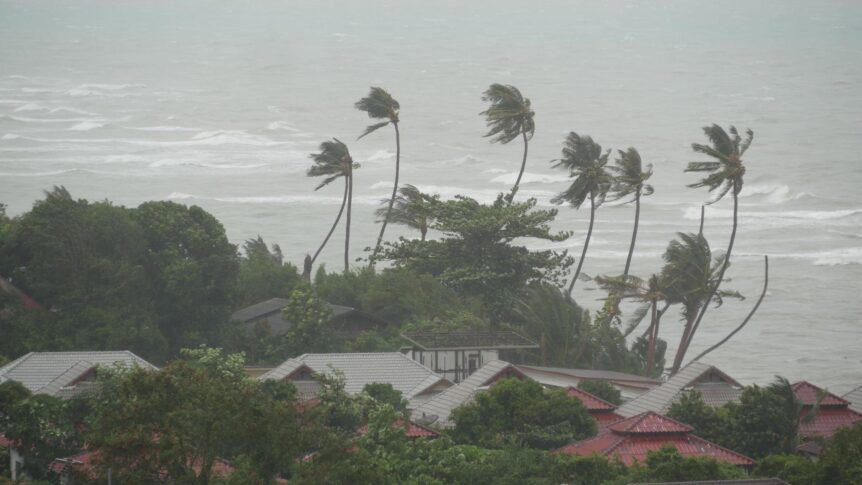As we enter the mid part of 2023, many are curious about what lies ahead regarding weather and natural disasters. One pressing question on the minds of meteorologists, researchers, and individuals residing in hurricane-prone regions is, “Will 2023 be an active hurricane season?” The anticipation and concerns surrounding the upcoming hurricane season are rooted in the previous year’s experiences and the complex interplay of various atmospheric factors. In this blog, we will explore the predictions, factors influencing the season, and steps individuals can take to stay prepared.
When Is Hurricane Season 2023?
The 2023 Atlantic hurricane season is rapidly approaching, set to begin on June 1 and extend until November 30. However, this season comes with a heightened level of uncertainty, as experts have identified a developing El Niño and unusually warm conditions in the Atlantic Basin as influential factors.
An analysis by Weather.com highlights the abnormal warmth observed in the Gulf of Mexico, off the Southeast U.S. coast, and in the eastern Atlantic during spring. In early April, forecasters kept a close eye on the potential formation of a tropical or subtropical storm in the area, but fortunately, it dissipated without significant impact.
April tropical systems are infrequent, with the last one, Tropical Storm Arlene, documented in 2017. Historically, no tropical system has been recorded in the Gulf of Mexico during April. However, Colorado State University meteorologists predict 13 tropical storms, of which six are expected to strengthen into hurricanes. A tropical storm is classified as a hurricane when its sustained winds reach or exceed 74 mph.
Will 2023 Be An Active Hurricane Season?
The 2022 Atlantic hurricane season was relatively normal, but what about 2023? According to Colorado State University’s (CSU) prediction, it will be slightly below average with 13 named storms and six hurricanes, two of which will likely be major hurricanes. CSU uses four models based on historical hurricane seasons to evaluate sea surface temperatures, El Niño, sea level pressures, and wind shear levels.
The team believes El Niño is the primary factor for the slightly below-average prediction, but conflicting signals between an abnormally warm Atlantic and a potentially robust El Niño make the prediction more uncertain than usual. CSU estimates that the 2023 hurricane season’s activity will be about 80% of the average season from 1991 to 2020. Phil Klotzbach, a research scientist at the Department of Atmospheric Science and the report’s lead author, notes similarities between this year’s hurricane season and those in 1969, 2002, 2004, 2006, 2009, 2012, 2014, and 2015.
Hurricane Season 2023 Storm Names
The 2023 Atlantic tropical cyclone names have been announced by the World Meteorological Organization (WMO). These names are issued alphabetically, following six rotating lists maintained by the WMO.
Interestingly, this year’s list of names was last used back in 2017. However, four names from that season have been retired: Harvey, Irma, Maria, and Nate. In their place, the WMO has introduced Harold, Idalia, Margot, and Nigel. The process of naming storms occurs once they reach a sufficient level of strength to become tropical or subtropical storms.
While names are often reused, there are instances where the WMO decides to retire certain names due to the significant destruction caused by particular hurricanes. Since 1953, a total of 96 Atlantic tropical cyclone names have been retired.
Here is the list of names for the 2023 Atlantic hurricane season:
- Arlene
- Bret
- Cindy
- Don
- Emily
- Franklin
- Gert
- Harold
- Idalia
- Jose
- Katia
- Lee
- Margot
- Nigel
- Ophelia
- Philippe
- Rina
- Sean
- Tammy
- Vince
- Whitney
How to Prepare for Hurricane Season 2023
To help you navigate the preparations, we’ve compiled a comprehensive checklist based on the U.S. Department of Homeland Security recommendations. Let’s dive in and make sure you have everything you need:
- Water: Store at least one gallon of water per person per day for several days, considering both drinking and sanitation needs.
- Food: Prepare a supply of non-perishable food that can sustain you and your family for several days.
- Communication: Have a battery-powered or hand-crank radio and a NOAA Weather Radio with an alert tone feature. This will keep you updated on the latest weather information.
- Lighting: Keep a flashlight handy along with extra batteries to ensure you have reliable illumination during power outages.
- First Aid Kit: Prepare a comprehensive kit with essential medical supplies and medications for your family’s needs and unexpected hurricane injuries.
- Whistle: Have a whistle readily accessible to signal for help if needed.
- Dust Mask: Keep dust masks available to help filter contaminated air in case of debris or hazardous conditions.
- Sheltering Supplies: Prepare plastic sheeting and duct tape to create a temporary shelter if necessary.
- Sanitation: Stock up on moist towels, garbage bags, and plastic ties for personal hygiene and sanitation needs.
- Tools: If required, keep a wrench or pliers handy to turn off utilities. Additionally, have a manual can opener for accessing canned food.
- Maps: Obtain local maps to stay informed about evacuation routes and nearby emergency resources.
- Communication Devices: Ensure your cell phone is fully charged, and consider having a backup battery or portable charger available.
- Masks and Sanitizers: Pack masks for everyone over two, as well as soap, hand sanitizer, and disinfecting wipes to maintain hygiene and disinfect surfaces.
- Medications: Organize and protect your prescription, over-the-counter, and vitamins. Refilling prescriptions may become challenging during an emergency, so it’s essential to have an adequate supply.
- Additional Medications: Include non-prescription medications such as pain relievers, anti-diarrhea, antacids, or laxatives.
- Eyecare: If you wear prescription eyeglasses or contact lenses, ensure a backup pair and contact lens solution are available.
- Infant and Pet Supplies: If you have infants or pets, stock up on necessary items such as formula, bottles, diapers, wipes, diaper rash cream, pet food, and extra water.
- Financial Preparedness: Keep cash or traveler’s checks on hand, as electronic payment systems may be affected during power outages.
- Important Documents: Safeguard important family documents, including insurance policies, identification, and bank account records—store copies electronically or in a waterproof, portable container.
- Comfort and Clothing: Prepare a sleeping bag or warm blanket for each person, a complete change of clothing suitable for your climate, and sturdy shoes.
- Safety Equipment: Keep a fire extinguisher readily accessible, and store matches in a waterproof container.
- Personal Care: Include feminine supplies and personal hygiene items in your preparedness kit.
- Dining Essentials: Pack mess kits, paper cups, plates, towels, and plastic utensils for easy meal preparation and cleanup.
- Documentation: It’s important to have paper and pencil to record important information such as emergency contacts, medical conditions, and other relevant details.
- Entertainment: During times of uncertainty and waiting out the storm, having books, games, puzzles, or other activities for children and adults can help pass the time and alleviate stress.
Amidst the looming question of “will 2023 be an active hurricane season,” it’s imperative not to overlook the importance of considering legal matters and having the essential resources in place to safeguard your rights and interests. Although it may not be part of the typical hurricane preparedness checklist, consulting with a lawyer can provide valuable guidance and support.
At RRBH Law, we help you understand your insurance policies, review important documents, and advise you on any legal issues that may arise during or after a hurricane. Being proactive and seeking legal assistance can give you peace of mind and help you navigate any legal challenges that may arise during this time. So stay safe, stay prepared, and don’t hesitate to reach out to professionals who can provide the assistance you need.

